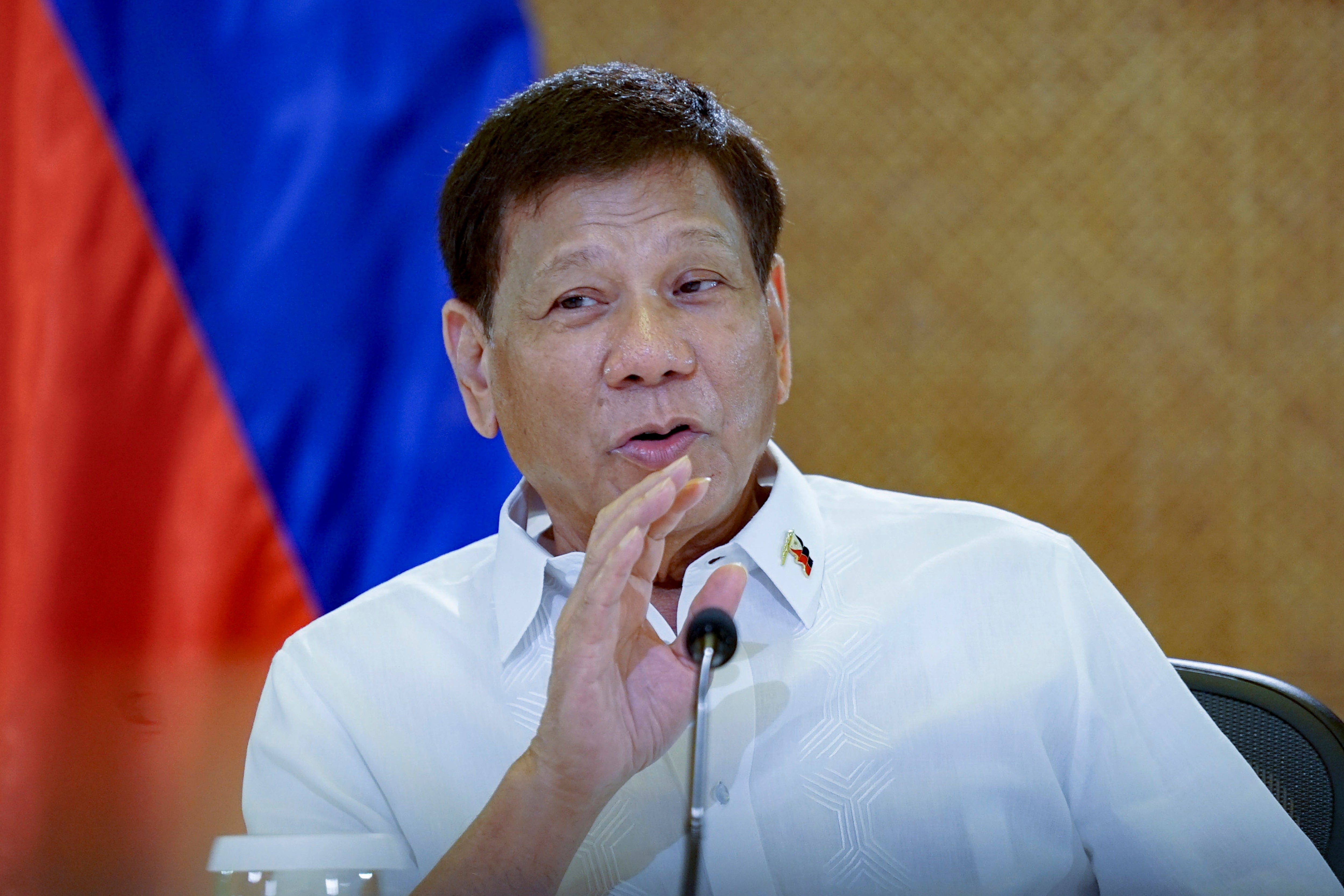Russia asks Philippines to honor helicopter purchase deal
Russia wants the Philippine government to honor a signed contract to purchase 16 military heavy-lift helicopters, which the administration of former President Rodrigo Duterte had cancelled due to fears of possible U.S. sanctions

Your support helps us to tell the story
From reproductive rights to climate change to Big Tech, The Independent is on the ground when the story is developing. Whether it's investigating the financials of Elon Musk's pro-Trump PAC or producing our latest documentary, 'The A Word', which shines a light on the American women fighting for reproductive rights, we know how important it is to parse out the facts from the messaging.
At such a critical moment in US history, we need reporters on the ground. Your donation allows us to keep sending journalists to speak to both sides of the story.
The Independent is trusted by Americans across the entire political spectrum. And unlike many other quality news outlets, we choose not to lock Americans out of our reporting and analysis with paywalls. We believe quality journalism should be available to everyone, paid for by those who can afford it.
Your support makes all the difference.Russia wants the Philippine government to honor a signed contract to purchase 16 military heavy-lift helicopters, which the administration of former President Rodrigo Duterte had cancelled due to fears of possible U.S. sanctions.
Moscow’s ambassador to Manila, Marat Pavlov, told reporters Wednesday night that the Philippine government has not officially notified Russia of its decision to cancel the deal and a Russian company was proceeding to manufacture the Mi-17 helicopters after the Philippines made an initial payment.
Filipino pilots, who would operate the helicopters, have undergone Russian training, he said.
The Russian aircraft manufacturer was ready to deliver one of the helicopters in June “but unfortunately, it was not accepted by your government,” the ambassador said.
“We are ready to fulfill all our obligations as a reliable partner of the Philippine side in the field of technical military cooperation and we consider that it will also be done by the Philippines,” Pavlov said.
There was no immediate comment from the Philippine government, now led by President Ferdinand Marcos Jr., but the Department of National Defense has said that after the decision to terminate the Russian helicopter deal was made, a government committee would be convened to thresh out the details and work to recover the unspecified amount paid by the Philippine government to the Russian company. The Russians can appeal but there is little room for the Philippine government to reconsider, a defense official said.
“I know that in any contract, it should be mentioned how it could be solved in case one of the parties would like to cancel,” Pavlov said and expressed hope the issue could be resolved under Marcos Jr.’s new administration, which has declared an independent foreign policy.
Former Philippine Defense Secretary Delfin Lorenzana and Ambassador to Washington Jose Manuel Romualdez first confirmed the government's decision to terminate the deal to acquire the Russian helicopters in interviews with The Associated Press in July.
The decision to cancel the contract, which was approved by Duterte, was made amid concerns over possible Western sanctions, which could include restrictions that would slow down the bank transfers of the massive income that Filipino workers send home from the U.S. and other Western countries, among other possible problems, according to Romualdez.
One of Duterte’s Cabinet members, Finance Secretary Sonny Dominguez, had warned Duterte then that Western countries may withhold assistance that could help the Philippines deal with and recover from coronavirus outbreaks, two Philippine officials told The AP on condition of anonymity because they lack the authority to discuss the issue publicly.
Romualdez has said Washington did not pressure the Philippines to drop the 12.7-billion-peso ($215 million) deal with the Russians.
But following Russia’s invasion of Ukraine in February, countries that purchase Russian defense equipment could face Western sanctions, he said.
“I think it was really prudent specially for President Duterte to approve the cancellation of that contract because it can save us a lot of trouble,” Romualdez told Manila-based foreign correspondents in August.
A U.S. offer to sell Boeing CH-47 Chinooks, which was discussed last year by Lorenzana and his American counterpart, Lloyd Austin, could be considered to replace the Russian helicopter deal, Romualdez said.
Under the scrapped helicopter deal, which was signed in November, the first batch of the multi-purpose helicopters would have been scheduled for delivery by Russia’s Sovtechnoexport in about two years. Aside from the 16 helicopters, one unit should have been given for free to the Philippines, defense officials said.
The Russian-made helicopters could have been used for combat, search and rescue operations, and medical evacuations in the Southeast Asian archipelago, which is often lashed by typhoons and other natural disasters, Philippine officials said.
In March, the Philippines voted “yes” on a U.N. General Assembly resolution that demanded an immediate halt to Moscow’s attack on Ukraine and the withdrawal of all Russian troops.
Duterte has expressed concern over the global impact of the Russian invasion but did not personally condemn it when he was still president. When he was in office, he nurtured close ties with Russian President Vladimir Putin, whom he once called his “idol,” and Chinese leader Xi Jinping while frequently criticizing U.S. security policies.
The Philippines is a treaty ally of Washington, which has imposed heavy sanctions on Moscow aimed at pressuring it to withdraw from Ukraine.